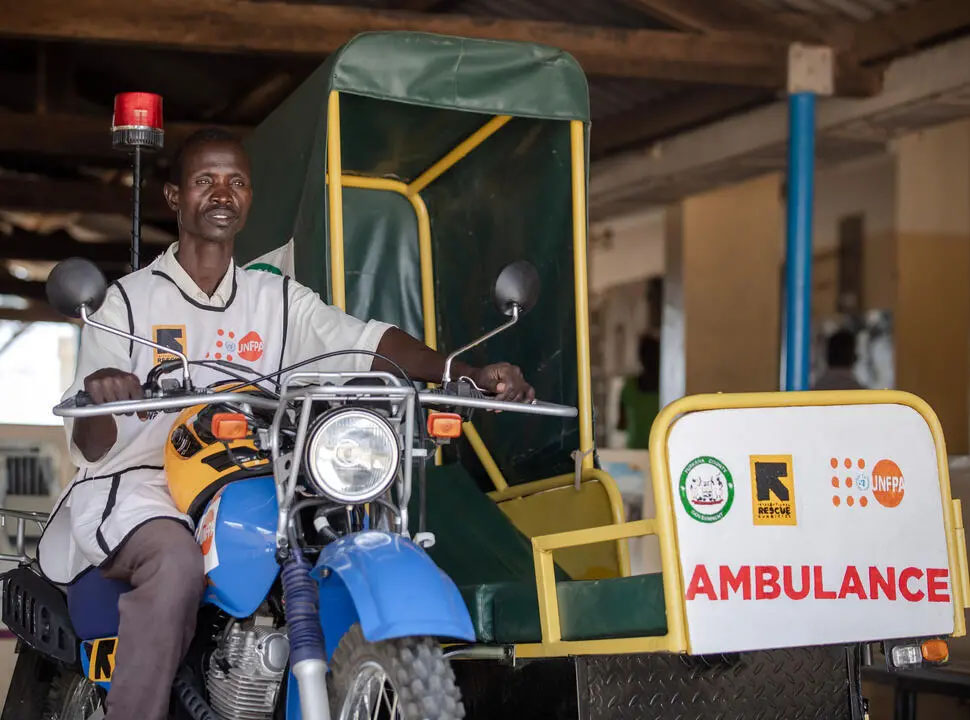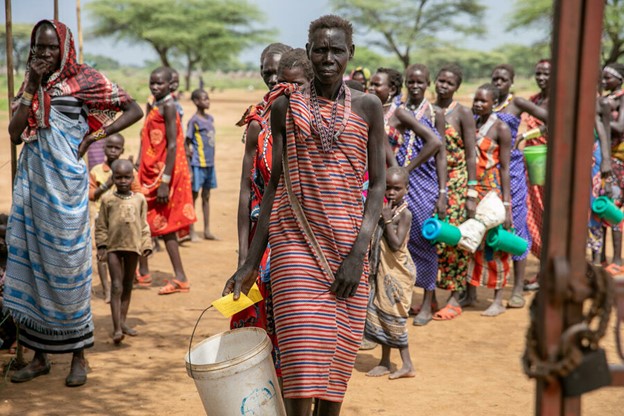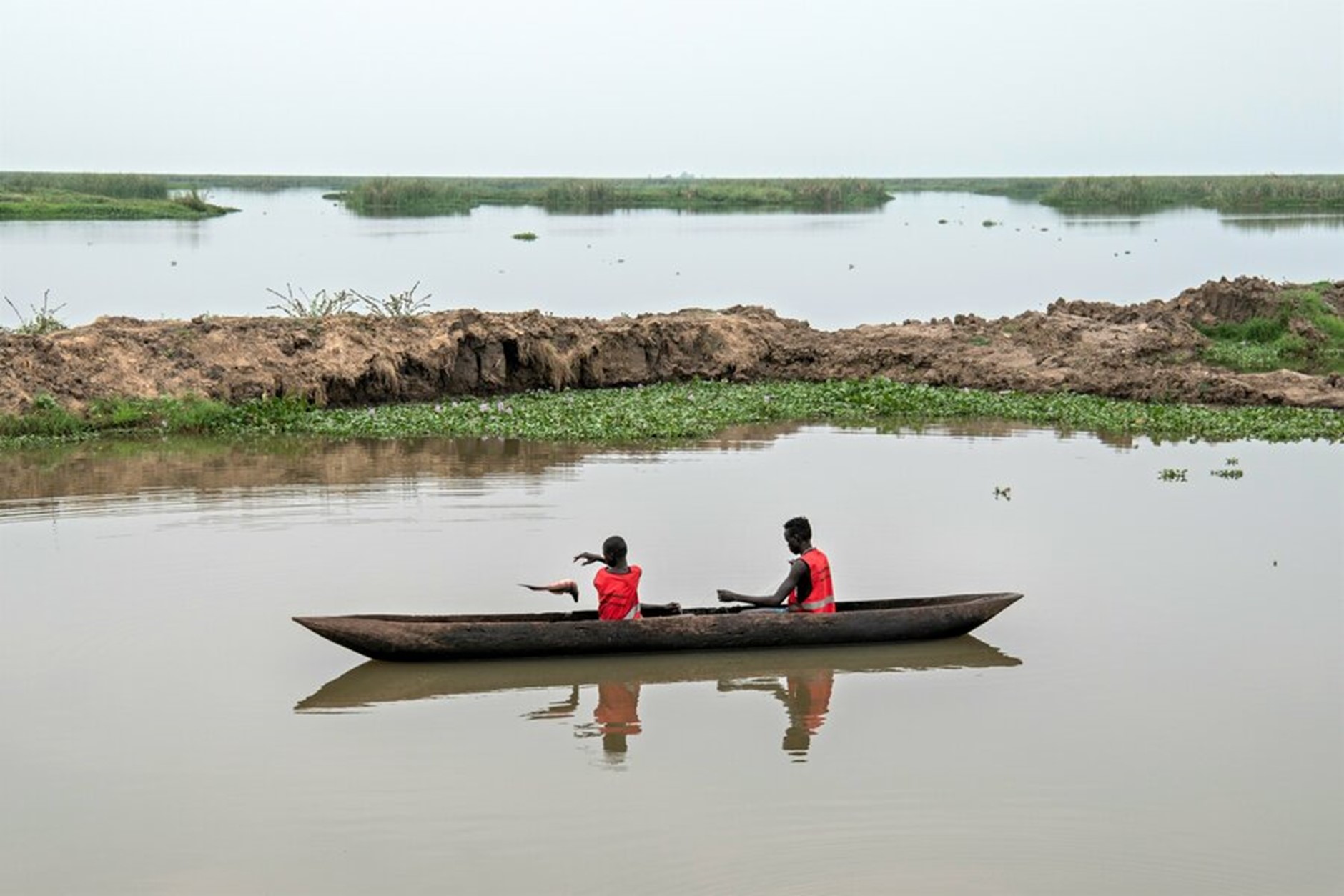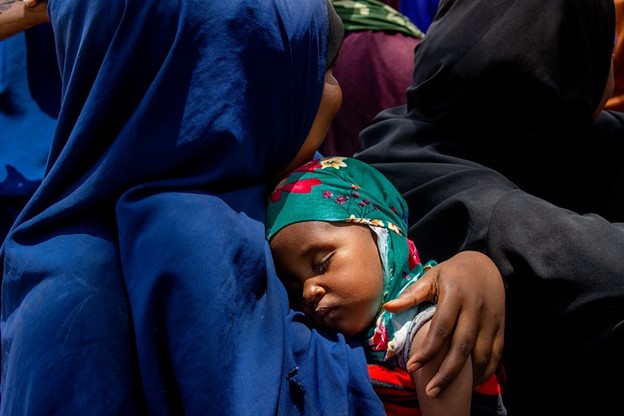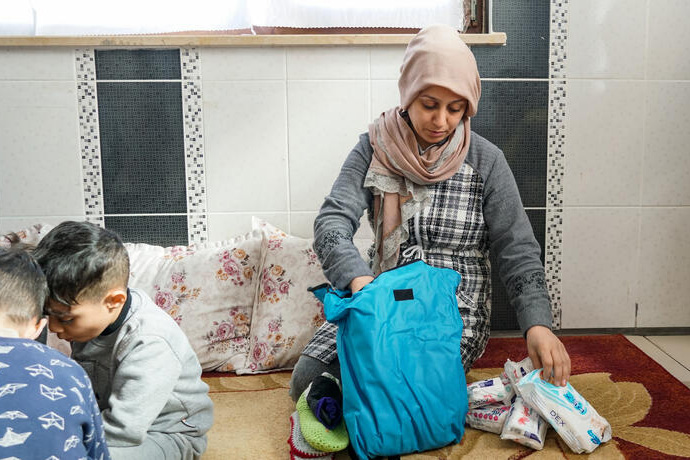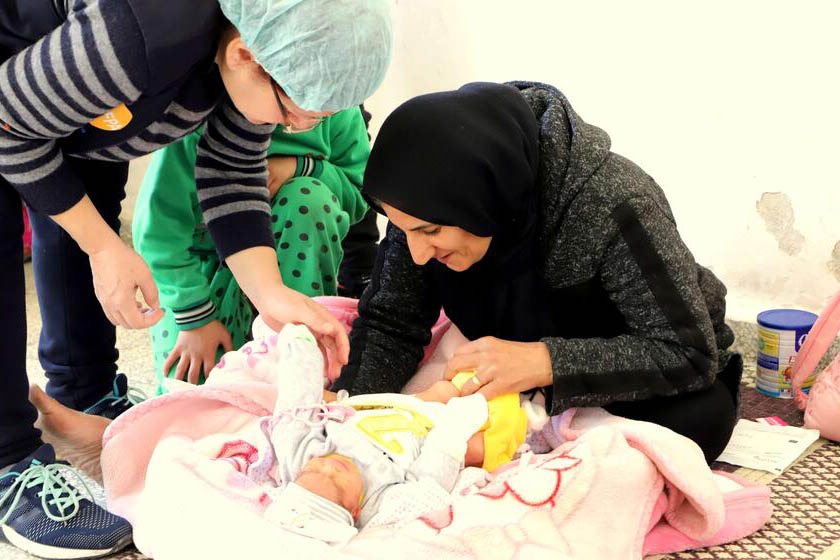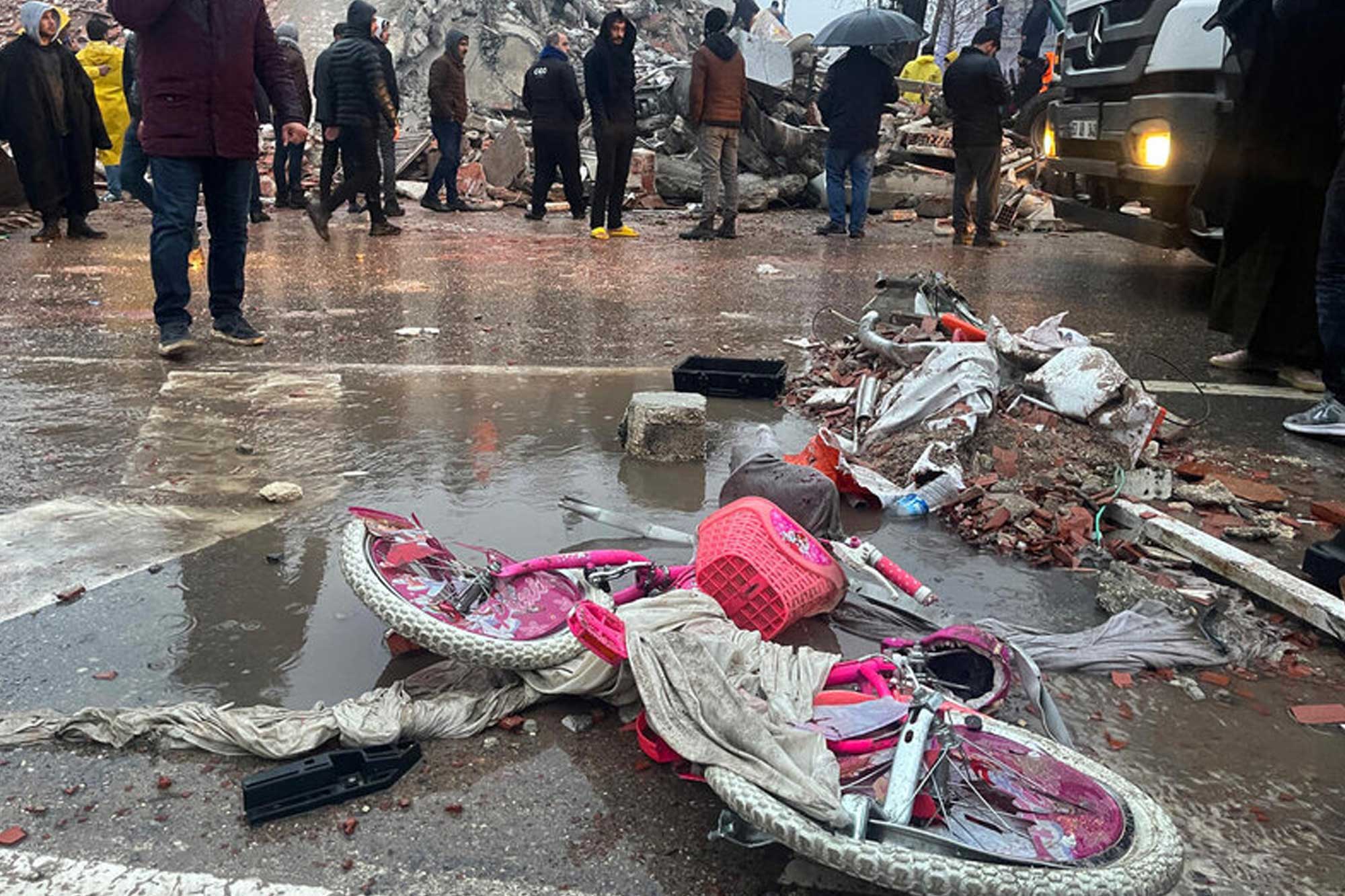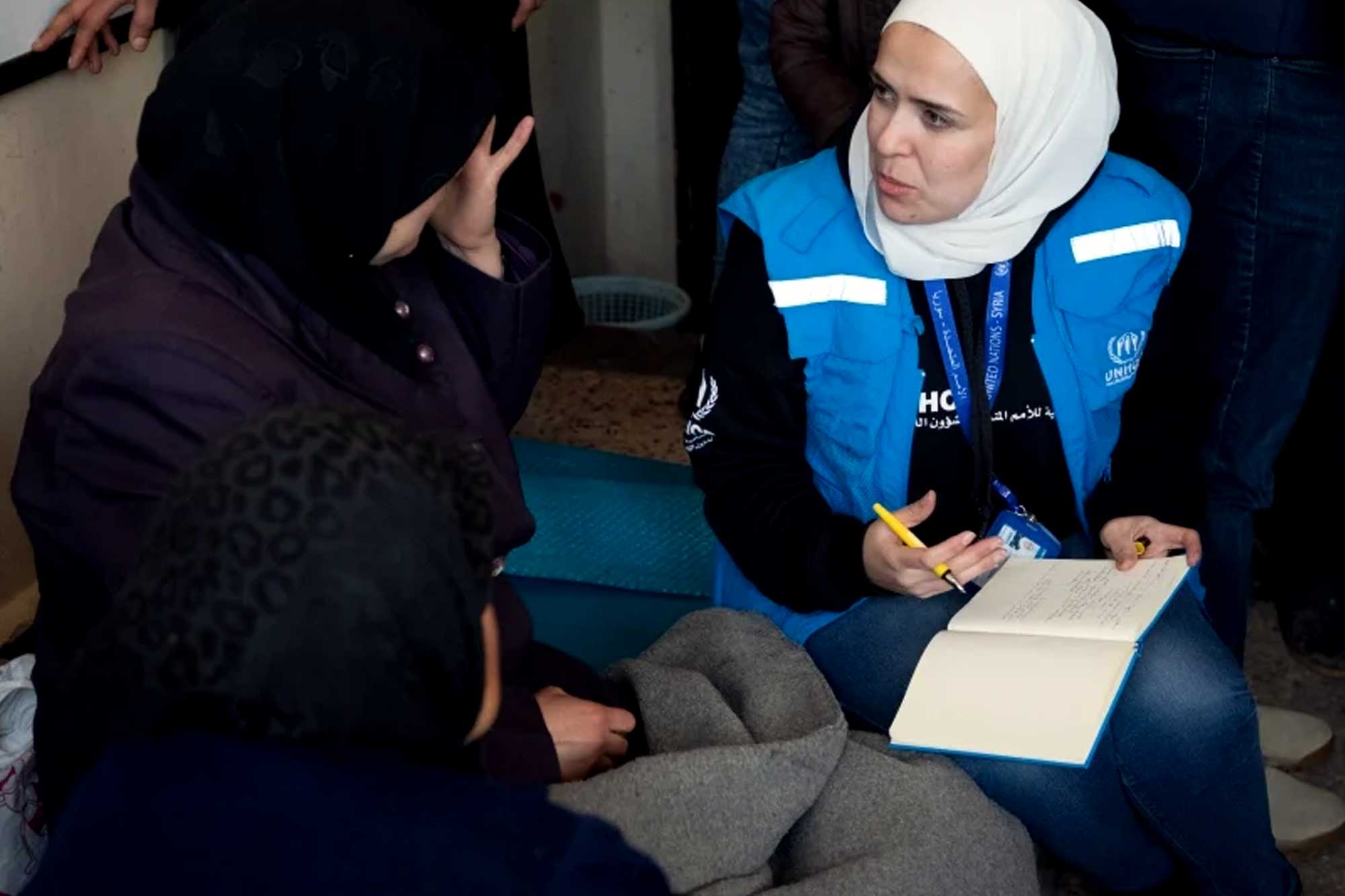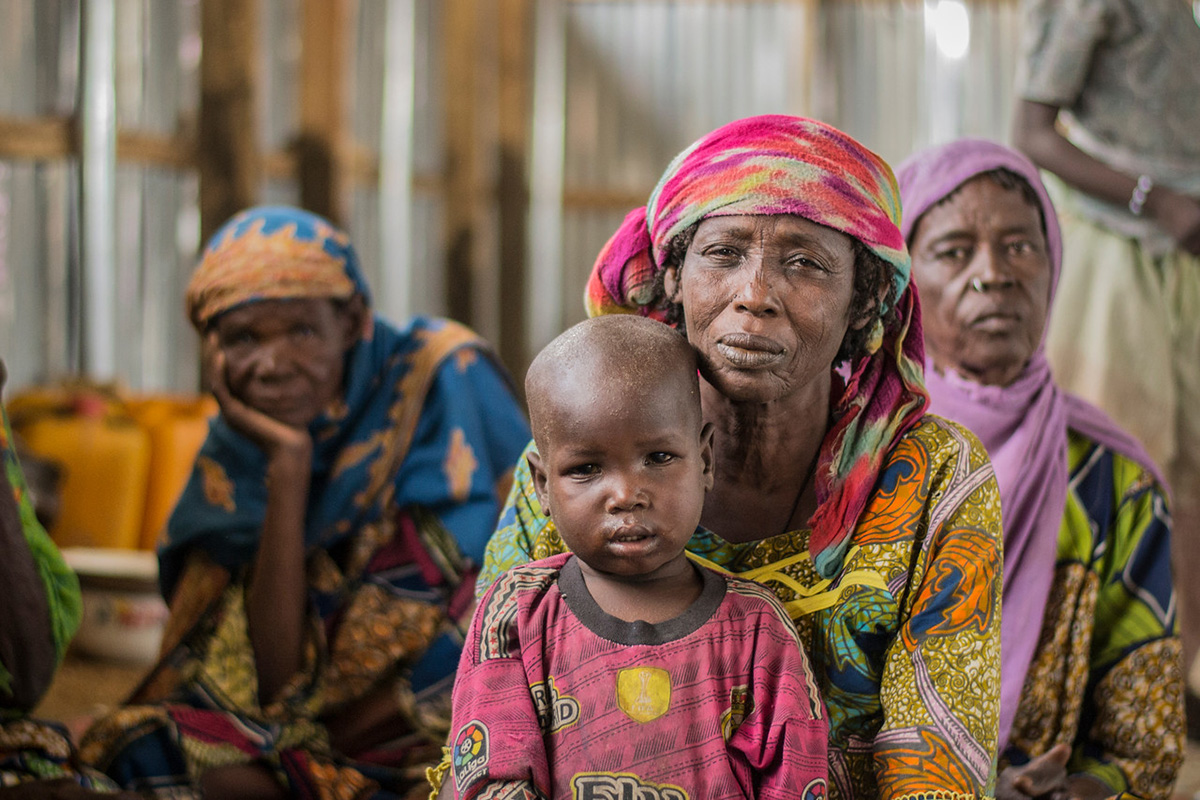For the women and girls who are living amid the Horn of Africa crisis, there are increased risks. Cases of child and forced marriage, female genital mutilation, rape, and other forms of violence have all risen sharply. UNFPA provides medical personnel and supports a range of mobile services and initiatives to reach people, such as this motorcycle ambulance, driven by Mark, who transports women to deliver safely. With increased support from the international community, UNFPA can do more for women to protect them from violence and provide access to medical interventions.
Humanitarian Aid
After three years of drought, more than 23 million people across parts of Ethiopia, Kenya and Somalia face severe hunger. When the region’s long-awaited rains arrived in March, they should have brought some relief. But instead, flash flooding inundated homes and farmland, washed away livestock, and closed schools and health facilities. Mortality and malnutrition rates remain a serious cause for concern. WFP and partners launched a rapid scale up of life-saving assistance in drought-hit Somalia, Kenya and Ethiopia, which helped to keep famine at bay in Somalia.
UNFPA highlights 5 reasons women and girls in Syria and Türkiye still need your support 3 months later after the devasting earthquake.
Unprecedented floods have swallowed large swathes of South Sudan, while other parts are grappling with devastating drought. The climate crisis is also compounding existing challenges in the country, such as conflict, poverty, and rising food and energy prices. This has left almost 8 million people facing crisis levels of hunger. The dyke rehabilitation by WFP is just one of many initiatives that they are rolling out to tackle the climate crisis, improve food security and develop rural economies in South Sudan. Families who had fled their towns when the dykes broke, are returning eager to rebuild their way of life.
Millions of children are experiencing a surge of preventable diseases because of prolonged drought and conflict in Somalia. Women and children make up more than 80 per cent of the displaced people in Somalia, and they are most affected. by the limited access to and unavailability of water, sanitation and hygiene services and increased risk of waterborne diseases. But only 27 per cent of Somalia’s population have access to essential health care. UNOCHA and its humanitarian partners are noting that the number of IDPs continues to increase due to ongoing conflict, drought-induced displacement and water shortages.
UNCTAD reports the Black Sea Grain Initiative - which has moved 25 million metric tons of grains - mostly benefitted developing countries, supporting food security among the most vulnerable.
More than 9 million people in Türkiye and 8.8 million in Syria were affected by two massive earthquakes. UNFPA provides psychosocial support and and health services across temporary camps.
UNFPA estimates there are more than 130,000 pregnant women in Syria, around 14,800 of whom will deliver in the next month. UNFPA was part of the first cross-border convoy to arrive with much needed relief items.
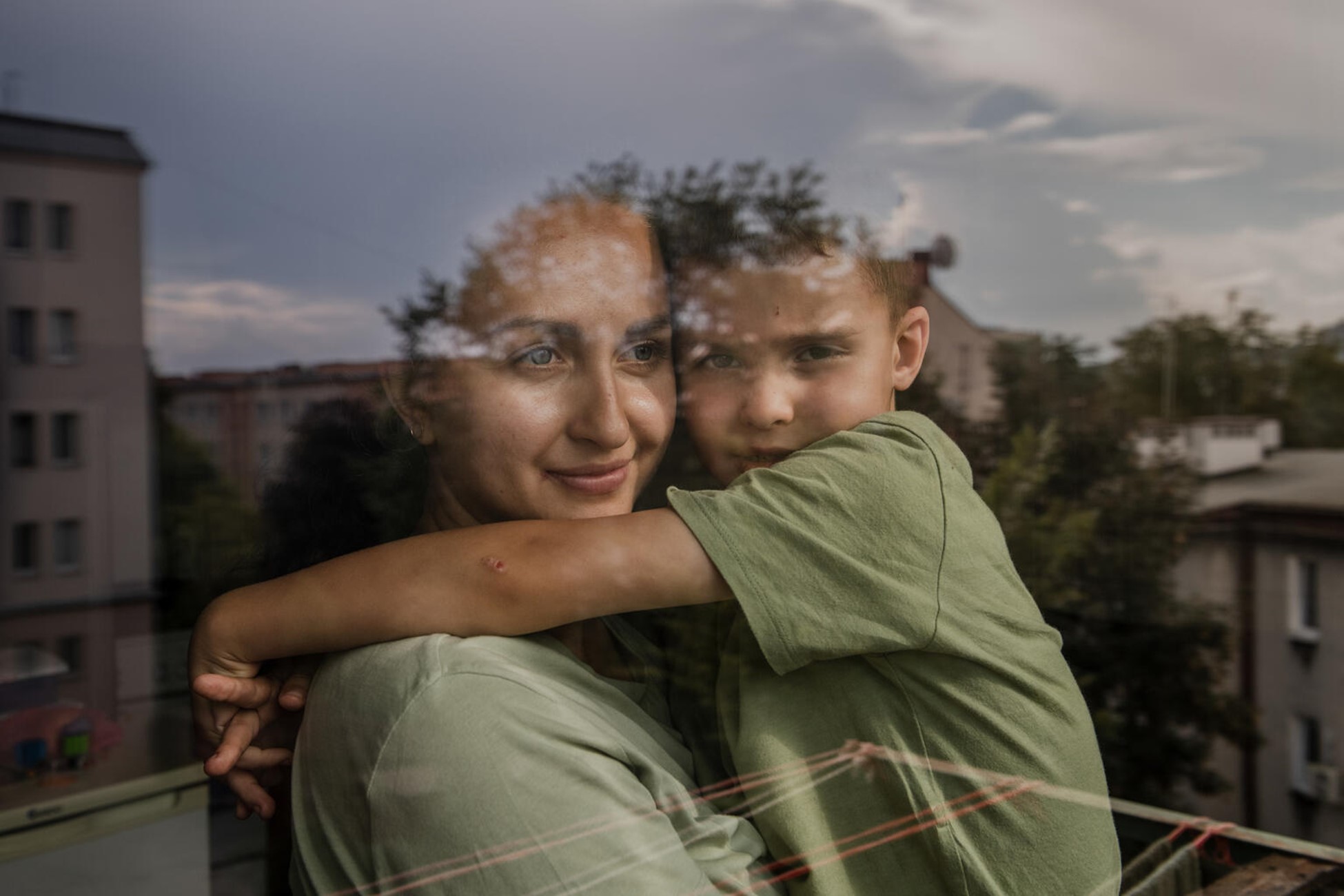
Children need peace. Now.
One year into the Ukraine war, an estimated 1.5 million children are at risk of depression, anxiety, post-traumatic stress disorder and other mental conditions. Not many are lucky as Kateryna who left Kyiv with her children at the beginning of the war. Once again, children are paying the price of a war not of their own making. UNICEF has been working with national and local authorities, as well as civil society organizations in Ukraine and neighboring countries to deliver emergency assistance, access to education, health and mental health support, and life-saving information to children and their families.
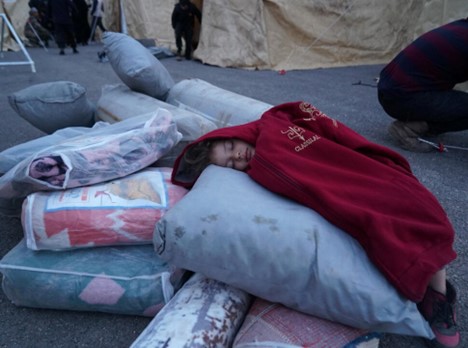
Race against time
Rescuers work into the night, racing against time, hoping to find survivors amid the overwhelming devastation caused by the Türkiye- Syria earthquake. Thousands of buildings, including maternity facilities and safe spaces for women and girls, have been severely damaged or destroyed. UNFPA is committed to support the people of Türkiye and Syria affected by the earthquakes, including the pregnant women who are expected to give birth in the coming weeks under these difficult conditions. Women working with the UNFPA-supported Women and Girls Safe Space are providing postnatal counseling and delivering maternal kits to pregnant women and new mothers.
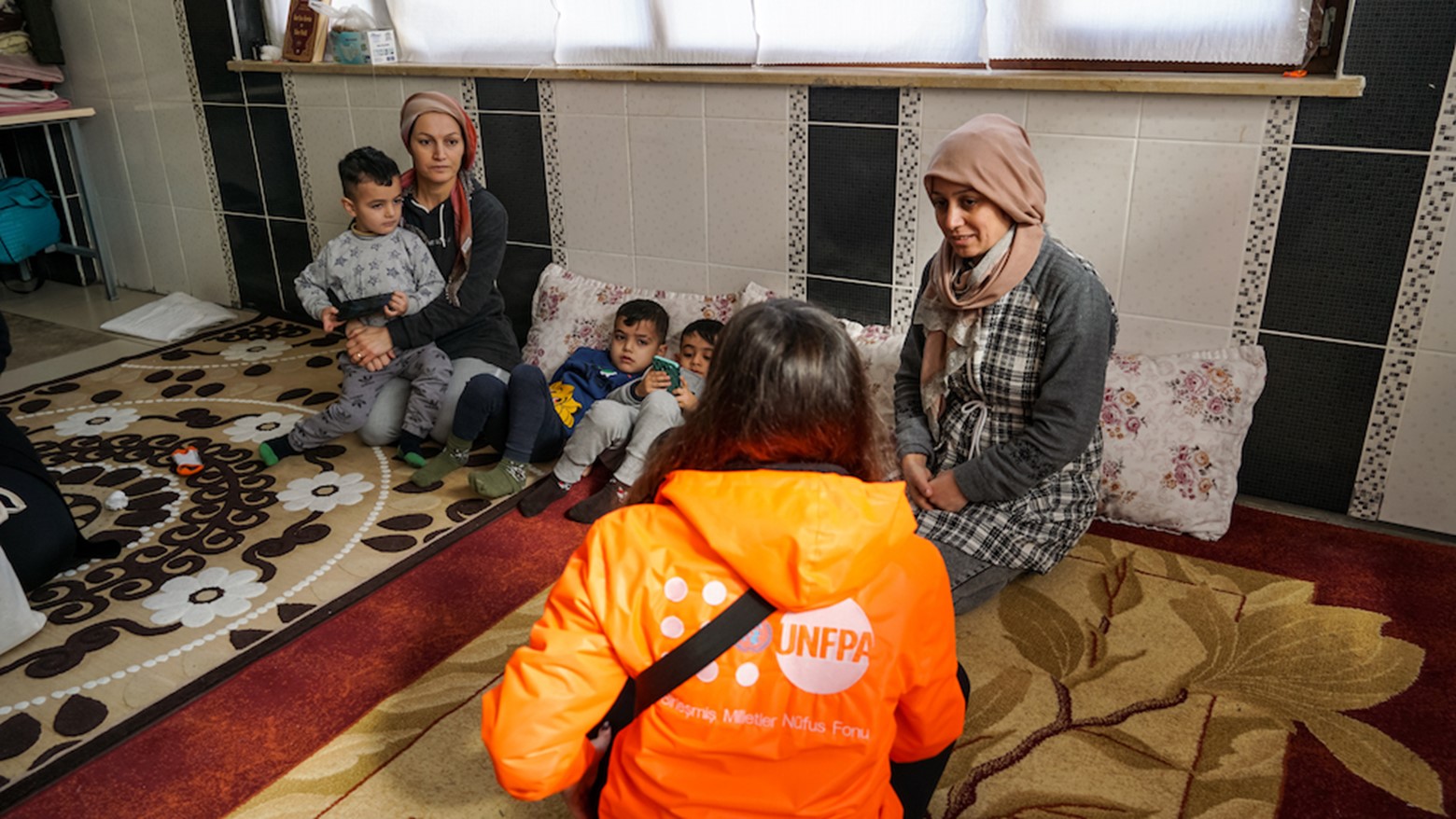
I lost everything in one minute
Early in the morning of 6 February, while most people were still sleeping, a powerful earthquake rocked Türkiye, carving death and destruction in the country’s southeast and in neighbouring Syria. Among the estimated 15 million people affected in Türkiye are over 214,000 pregnant women – of whom almost 24,000 are due to give birth in the next month. With essential medical supplies wiped out across the two countries and hundreds of health centres, maternity facilities and safe spaces damaged, UNFPA is on the ground across affected areas in both Türkiye and Syria and remains dedicated to re-establishing services critical to the well-being and protection of millions of vulnerable, traumatized women and girls in urgent need of maternal care and support.
As of February 8, WFP had reached 64,000 affected people in both countries with hot meals and plans to scale up sharply following the deadly earthquakes that struck Türkiye and Syria.
UNHCR is on the ground providing life-saving assistance to families affected by the disaster. Humanitarian partners are working hard to reach all amidst challenging circumstances.
Following the catastrophic floods that ravaged the country, over 20 million are in need of humanitarian assistance. UNOPS, with funding from the World Bank, is working with the Sindh government in responding to the crisis by procuring tents and other vital supplies.
After nearly 13 years, the Lake Chad region is one of the world’s most protracted conflict and crisis environments. Despite some positive developments, armed groups continue to spread violence and 11 million people are in need of wide-ranging assistance in Cameroon, Chad, Niger and Nigeria. The third high-level Lake Chad conference (23-24 January) is a critical international political forum able to facilitate a regional, cross-border consensus around the required adjustments for effectively dealing with the prevailing multi-faceted challenges in the region.

